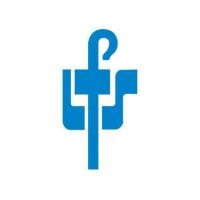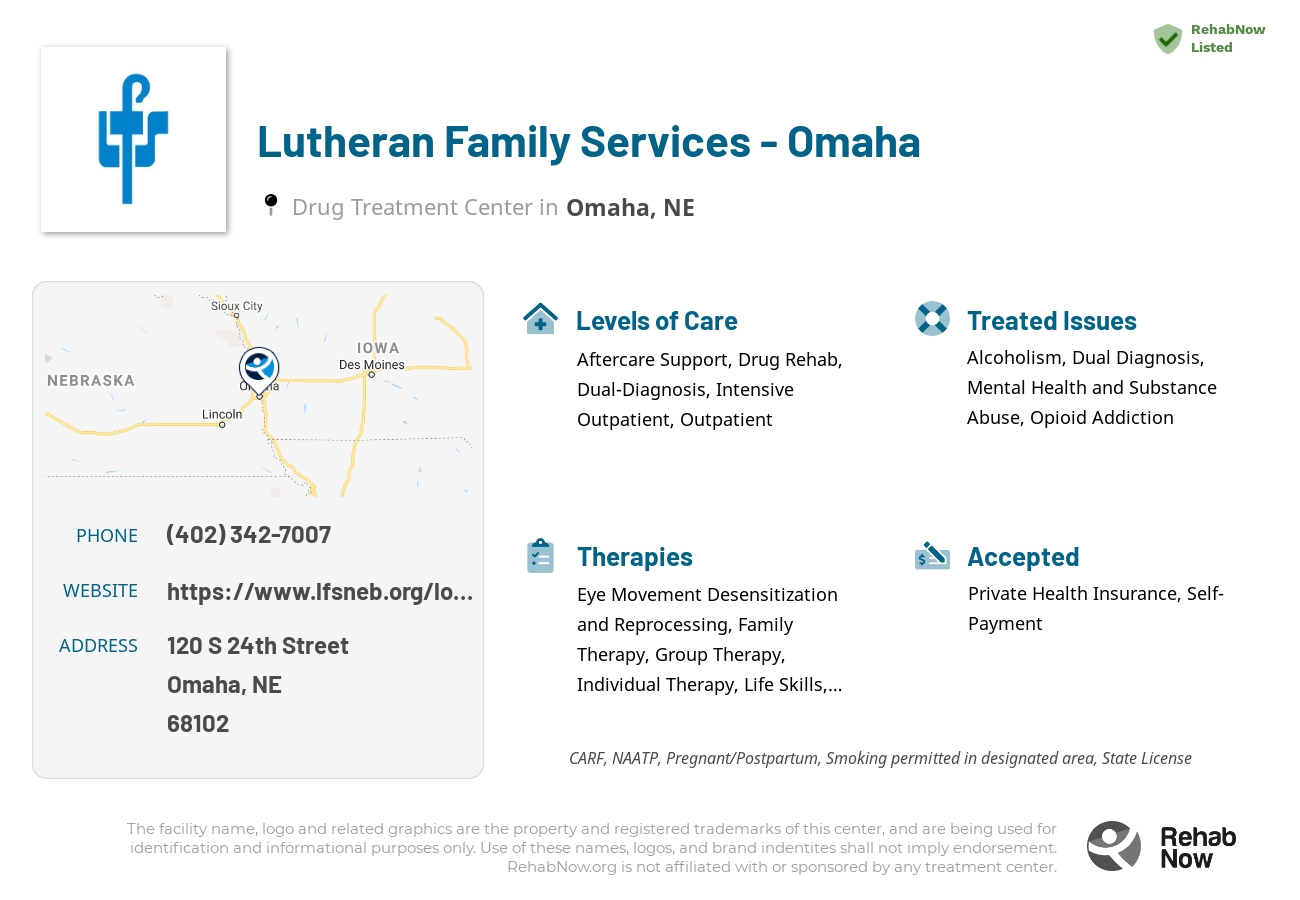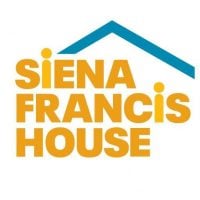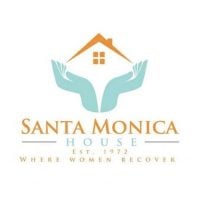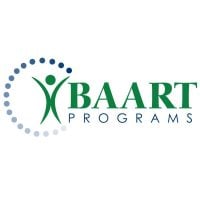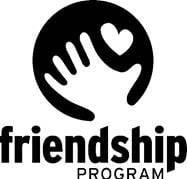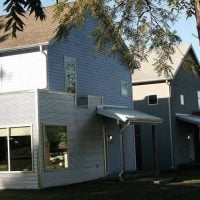Lutheran Family Services - Omaha
Drug Rehab Center in Omaha, Nebraska
Lutheran Family Services - Omaha is a highly regarded provider of mental health, addiction, and substance abuse services in Omaha, Nebraska, offering state-of-the-art facilities and personalized care plans for individuals and families.
About Lutheran Family Services - Omaha in Nebraska
Lutheran Family Services - Omaha is a leading provider of mental health, addiction, and substance abuse services in Omaha, Nebraska. With state-of-the-art facilities and a team of skilled, certified professionals, Lutheran Family Services - Omaha has been providing quality care to individuals and families since its founding in 1978. The services provided by Minneapolis-based Lutheran Family Services - Omaha include individual and family counseling, inpatient and outpatient treatment for addiction and substance abuse, as well as trauma-informed care.
Given the challenges faced by individuals dealing with addiction and substance abuse, Lutheran Family Services - Omaha offers an array of services and programs to help each person in their recovery. They offer individualized care plans, 12-step program and cognitive behavioral therapy, as well as options for residential and outpatient treatment. Their programs are designed to provide the right method of treatment and support to help each person reach their full potential.
Lutheran Family Services - Omaha is accredited by The Joint Commission and is fully licensed by the Nebraska Department of Health and Human Services. They have won numerous awards, including a Faith-Based Excellence Award from the Council on Accreditation, and they have also been recognized by the National Association of Mental Illness for their commitment to providing high-quality care. Additionally, Lutheran Family Services - Omaha offers unique telehealth and telemedicine services that allow individuals to get the care they need without leaving the comfort of their own home.
Genders
Ages
Modality
Additional
Conditions and Issues Treated
Opioid addiction is when someone becomes addicted to opioids. This can happen quickly due to any opioid use. Opioid withdrawal can be uncomfortable and lead the user to continue using even if they want to quit. It’s best to receive inpatient treatment for detoxification.
Even if a person doesn’t need inpatient treatment, it’s recommended to start rehabilitation or at least some kind of outpatient treatment. This is because the withdrawal symptoms from opioids can be uncomfortable and unpleasant, to the point that a person could end up using again or worse.
Detoxification should be done to break the physical addiction of opioids. This can be done with opioid replacement therapy, medication-assisted therapy, or a more traditional detoxification program. Intensive outpatient treatment is a form of addiction care that allows patients to continue living at home while undergoing treatment. This type of care is appropriate for patients who have been treated in residential treatment programs. Intensive outpatient programs include regular visits to the facility providing therapy, and patients gradually return to their routine life. IOP benefits most when patients have a supportive family member or friend to help them recover.
The first step to getting into an intensive outpatient program is to attend a detoxification facility. Detoxification facilities are designed to remove substances from the body safely. The patient will attend sessions designed to help them understand their addiction and its impact on their lives. While in an intensive outpatient program, therapy sessions are scheduled three to five times per week, with the patient attending no more than two sessions in one day.
Dual Diagnosis therapy is considered more successful than traditional rehab methods because it treats the addiction and the underlying mental health disorder simultaneously. This comprehensive approach gives Omaha, NE patients the best chance for long-term recovery. If the patient does not receive treatment for both conditions, they are more likely to relapse.
Levels of Care Offered
This center offers a variety of custom treatment tailored to individual recovery. Currently available are Aftercare Support, Drug Rehab, Dual-Diagnosis, Intensive Outpatient, Outpatient, with additional therapies available as listed below.
An intensive outpatient treatment program, or IOP, is set up for those struggling with an addiction to begin the recovery process. However, the patient will not live at the facility during treatment.
IOP involves patients coming in and out of a medical office building regularly to receive therapy and other services while continuing their life outside of these visits.
IOP is a step up from drug detoxification or alcohol detox. However, it’s still considered a phase of recovery rather than the ultimate goal. There are many rehabs and treatment facilities available to patients in need of IOP.
Outpatient treatment consists of counseling and therapy sessions. The outpatient treatment process begins with the addict’s initial detox period, lasting about ten days. Outpatient treatment is used for those who are at moderate risk for “slipping back” into the addiction. It is also used for those who are not currently experiencing any side effects from withdrawal, can handle social pressure, have a stable living environment, and have a good support system.
Aftercare support is often overlooked in the treatment of drug and alcohol addiction. However, it’s an essential part and should be considered when planning a course of rehab.
Aftercare is a term that’s used to refer to any sort of continuing care offered for a drug addict who has voluntarily entered a rehabilitation program. This type of care can be provided in several settings, including outpatient therapy sessions after the addict has completed an inpatient program. There are also 12-step support groups, such as Alcoholics Anonymous, which can provide additional help for addicts trying to stay sober.
Aftercare is vital because addicts often face many challenges as they attempt to recover from drug addiction or alcoholism. Because of the powerful nature of these addictions, those who struggle with a drug or alcohol problem will likely have to face the craving for their substance of choice for the rest of their lives. Recovering can be a lonely and frustrating endeavor, especially without the support of others who are going through similar situations.
Therapies & Programs
Individual Therapy is a crucial component of addiction recovery. Therapists work with patients to identify the root of their addiction and figure out how to better handle the issues that led to them using drugs. Individual Therapy is one on one sessions where people meet with their therapist. Individual therapy provides a safe space for people to open up and discuss personal and sensitive topics which they may not feel comfortable discussing in a group setting.
In this type of therapy, therapists can develop specific solutions for each patient, which helps speed up their recovery process. In addiction recovery, therapy is a crucial part. It allows patients to go deep into their core issues and discover how those problems can be better handled now. Therapy can be performed in individual sessions as well as group settings. In individual therapy for addiction, the patient meets with the therapist one-on-one to focus on the underlying issues of addiction and come up with solutions to prevent future abuse.
Family therapy is a crucial part of drug treatment and getting sober. It is one of the most effective ways to help addicts stay on the path to long-term sobriety. One of the most important parts of family therapy is the relapse prevention plan. During treatment, therapists and doctors will often sit down with the addict and their family to develop a plan if the addict ever feels like they want to use again. This plan should involve steps the addict and family can take together to prevent them from relapsing in the future.
An addict’s family can play a vital part in helping them to avoid relapse because they can spot the warning signs and help them get back on track before it becomes too much of a problem. Family therapy is one of the most effective ways to help addicts stay on the path to long-term sobriety.
Group Therapy is employed by drug treatment centers like Lutheran Family Services - Omaha to provide the recovering addict with a platform to talk about their feelings and experiences. It also provides for an opportunity to learn from other addicts who have successfully overcome their addiction. It is recommended that all group members be recovering addicts for this type of therapy to work.
This type of therapy involves the use of a variety of therapeutic techniques to help addicts recover from past traumas that might have triggered their substance abuse. During these sessions, therapists will work with the addict to address painful memories and learn how to cope effectively with stressors as they arise.
During these types of sessions, therapists will typically focus on three main goals:
- Identifying and expressing painful emotions associated with past traumas.
- Reducing the effects of stress on an addict’s life by developing more effective coping mechanisms.
- Developing healthy ways of thinking about stressful situations that can help addicts avoid substance abuse issues in the future.
This type of therapy is typically used in conjunction with other types of addiction treatment services. By identifying and dealing with the root cause of addiction, most addicts can overcome their cravings and prevent relapse once they leave rehab.
Many different types of addiction treatment services exist to help addicts safely get sober, but it’s important for recovering individuals to find a therapist or support group that will help them address the root cause of their addiction.
Cognitive Behavioral Therapy (CBT) is an approach and method in psychotherapy. Lutheran Family Services - Omaha asks people to investigate how their thoughts, including habitual, harmful, and inaccurate ways of thinking, affect behaviors. CBT is based on the idea that rigid, inflexible ways of thinking cause people to have a limited ability to cope with stress, which leads to emotional distress.
Likewise, CBT helps people identify maladaptive behaviors and replace them with more positive behaviors. It makes you look at the way you perceive something and ask: Is this a realistic belief? CBT asks people to look at the role of behaviors and emotional responses and how they may be distressing in one’s life. The goal of CBT is to change the way people think and behave to achieve a more balanced, healthier lifestyle.
Moreover, CBT has been shown to reduce some types of anxiety disorders, depression, and symptoms related to thoughts or actions that are considered harmful.
EMDR helps patients deal with past events. The Lutheran Family Services - Omaha This method also boosts healing which calms many allowing one to feel more in control when fighting addiction. EMDR is a therapeutic method that uses hand tapping or moving visual stimuli to provide stimulus to people recounting traumatic events.
Life Skills Services provide services aimed at helping people enter into and maintain long-term sobriety. The services are offered at varying levels of intensity, specific to the needs and requirements of each patient. Some benefits of these services are restoring hope and empowerment, enhancing family involvement, increasing patient compliance, and reducing relapse rates.
Training someone on improved life skills allows someone recovering from an addiction to feel more capable of taking care of him or herself. The skills taught in Lutheran Family Services - Omaha are daily skills that give a better recovery foundation by simply giving the person tools they need to survive.
Payment Options Accepted
For specific insurance or payment methods please contact us.
Is your insurance accepted?
Ask an expert, call (888) 674-0062
Lutheran Family Services Associated Centers
Discover treatment facilities under the same provider.
- Lutheran Family Services - North Omaha Behavioral Health in Omaha, NE
- Lutheran Family Services - Children Services Center in Omaha, NE
- Lutheran Family Services - Child Advocacy Center in Lincoln, NE
- Lutheran Family Services - Connections Building in Omaha, NE
- Lutheran Family Services - North Omaha for Healthy Families in Omaha, NE
Learn More About Lutheran Family Services Centers
Additional Details
Specifics, location, and helpful extra information.
Omaha, Nebraska 68102 Phone Number(402) 342-7007 Meta DetailsUpdated November 25, 2023
Staff Verified
Lutheran Family Services - Omaha Patient Reviews
There are no reviews yet. Be the first one to write one.
Omaha, Nebraska Addiction Information
Despite a total population of slightly less than 2 million residents, methamphetamines are one of the most commonly abused illicit substances in the state. Alcohol abuse is so common that a news article once referred to Nebraska as "America's 9th drunkest state". Although opioid abuse rates in Nebraska are not as high as those in other states, opioids are still involved in most overdoses.
Omaha, NE has been hit hard by drug addiction and abuse in recent years. About 5% of the population is addicted to drugs or alcohol. Marijuana is the most commonly abused drug in Omaha. In 2017, there were 936 people admitted to treatment centers for marijuana abuse. Crime rates have gone up, and there have been more cases of child abuse and neglect.
Treatment in Nearby Cities
- Columbus, NE (74.3 mi.)
- Springhill, NE (3.2 mi.)
- Nebraska City, NE (40.5 mi.)
- Milford, NE (66.6 mi.)
- Wahoo, NE (35.2 mi.)
Centers near Lutheran Family Services - Omaha
The facility name, logo and brand are the property and registered trademarks of Lutheran Family Services - Omaha, and are being used for identification and informational purposes only. Use of these names, logos and brands shall not imply endorsement. RehabNow.org is not affiliated with or sponsored by Lutheran Family Services - Omaha.
